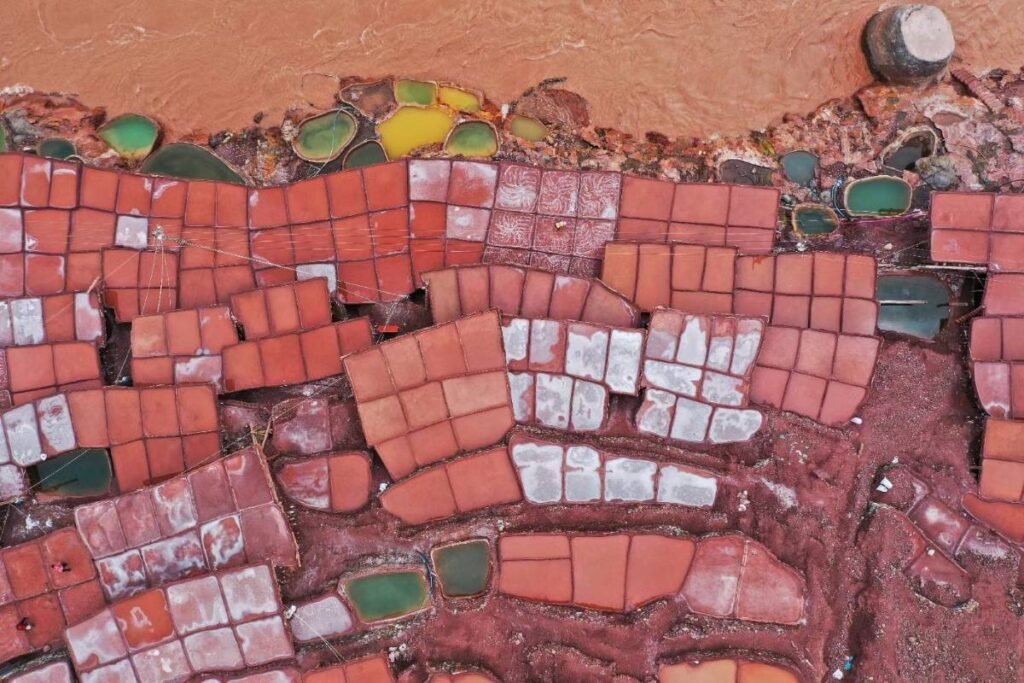Mangkang County Along the Tea Horse Road: Culture, Nature, and Living Traditions
Mangkang County, located in eastern Tibet, is a land where ancient history and dramatic landscapes come together. As an important stop along the legendary Tea Horse Road, Mangkang has long served as a cultural crossroads linking Tibet, Sichuan, and Yunnan. Today, the region continues to attract travelers with its rich heritage, sacred sites, and remarkable natural scenery.
Within the Shangyanjing area alone, visitors can explore Tibetan cliff carvings dating back to the era of Princess Wencheng, centuries-old salt fields, the only Catholic church in Tibet, snow-capped mountains, deep river canyons, Quka Hot Springs, the Yunnan Snub-Nosed Monkey Nature Reserve, Mangcuo Scenic Area, and the historic Nigo Monastery. Together, these sites reveal the deep cultural layers and ecological diversity of Mangkang County.
Yanjing Nature Reserve: A Biodiversity Haven in Eastern Tibet
The Yanjing Nature Reserve is one of the most important ecological regions in Mangkang County. Covering an area of 1,853 square kilometers, the reserve boasts a forest coverage rate of 47.9 percent, making it a vital green corridor along the Lancang River.
The landscape here is highly varied. Pengbola Mountain, the highest peak in the reserve, rises to 5,084 meters, while river valleys sit at elevations between 2,300 and 3,000 meters. This wide range of altitudes creates ideal conditions for diverse plant and animal life.
Yanjing Nature Reserve is home to nearly 50 species of wildlife under national and regional protection. Its most famous resident is the Yunnan Snub-Nosed Monkey, a critically endangered species classified as a national first-class protected animal. Because of this, the area is often referred to as the “Home of the Snub-Nosed Monkey” and plays a crucial role in wildlife conservation in eastern Tibet.
Geographic Location and Mild Climate of Yanjing
Yanjing sits at the meeting point of Tibet, Sichuan, and Yunnan, positioned along the banks of the Lancang River. This strategic location has shaped both its natural environment and cultural development over centuries.
Unlike many high-altitude regions in Tibet, Yanjing lies at a relatively low elevation, averaging around 2,500 meters above sea level. The climate is mild and pleasant, with average annual temperatures ranging between 20°C and 25°C. These comfortable conditions support lush vegetation, fertile river valleys, and long-standing human settlement, making Yanjing an ideal place for agriculture, salt production, and trade.

The Ancient Salt Fields of Yanjing: A Living Heritage
Yanjing’s name comes from the Tibetan word “Chakarlo,” meaning “salt well,” and salt production has defined the area’s identity for centuries. Along the Lancang River, natural salt springs emerge from layers of Triassic red sandstone and conglomerate rock, with a remarkably high salt content of 30.7 grams per liter.
Local communities developed a unique salt-making system by expanding these springs and building square wooden structures over them. The flat roofs of these shelters are coated with a thick layer of waterproof red clay, forming the iconic Yanjing salt fields that cling to the riverbanks and mountainsides.
Salt Production in Naxi and Quka Townships
Today, traditional salt production continues mainly in the townships of Naxi and Quka. More than 320 households manage over 3,000 salt fields, maintaining techniques passed down through generations.
On the west bank of the Lancang River, more than 2,600 salt fields rise in terraced layers from the river’s edge up toward the mountain slopes. On the steeper east bank, the salt fields are narrower and more compact, stretching along the mountainside like long ribbons wrapped around the terrain. This striking layout creates one of the most visually impressive salt-production landscapes in the world.
A One-of-a-Kind Salt-Making Process
Dozens of salt wells, each about 5 to 6 meters deep, line the riverbanks in Yanjing. Warm brine rises from underground, releasing steam that often blankets the area in mist, adding to the site’s mystical atmosphere.
Salt brine is drawn from caves along the river and carried by hand in buckets to wooden platforms built several stories high. The brine is first left to settle in salt pools, allowing impurities to sink. It is then poured onto the salt fields, where sunlight and wind slowly evaporate the water.
Once the moisture disappears, shimmering salt crystals remain. These are carefully collected to produce the famous Tibetan salt, prized for its purity and traditional craftsmanship. This labor-intensive method is found nowhere else in the world and remains one of Yanjing’s most remarkable cultural treasures.
A Cultural Landscape Shaped by Nature and Tradition
The salt fields of Yanjing are more than a means of production—they are a living expression of how local communities have adapted to their environment over centuries. Set against the backdrop of the Lancang River, towering mountains, and ancient trade routes, the salt fields stand as a powerful symbol of Mangkang County’s enduring relationship with nature, culture, and history.
